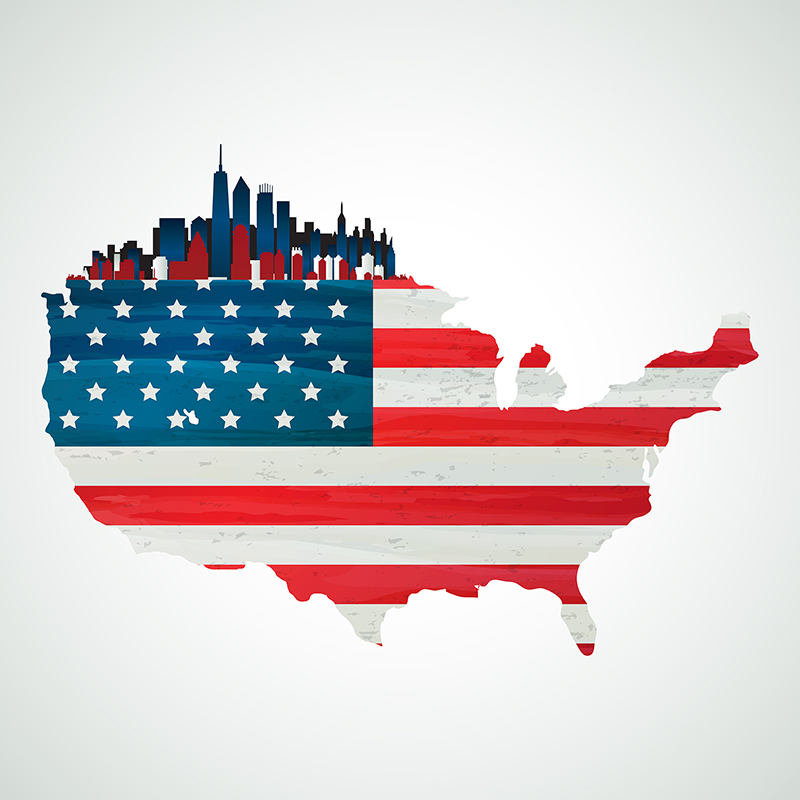 To foster preference of construction products and materials sourced and manufactured within the U.S. for use in federally funded infrastructure projects, the Buy American Act (BAA) and the Buy America Act (BA) have been in place for many years. However, the Build America Buy America Act (BABA) more recently was enacted on Nov. 15, of 2021 as part of the Infrastructure Investment and Jobs Act (IIJA).
To foster preference of construction products and materials sourced and manufactured within the U.S. for use in federally funded infrastructure projects, the Buy American Act (BAA) and the Buy America Act (BA) have been in place for many years. However, the Build America Buy America Act (BABA) more recently was enacted on Nov. 15, of 2021 as part of the Infrastructure Investment and Jobs Act (IIJA).
Reading these acronyms, you may think, “Aren’t these programs all the same?” Please note, they are not. To best understand how BABA and its 2023 supplemental guidelines affect the world of aluminum fenestration, let’s start with a quick history lesson.
- The Buy American Act (BAA) was signed by President Hoover on his last day in office, May 3, 1933. For the most part, it was an effort to help bring the U.S. out of the Great Depression by giving preference to the purchase of domestically produced goods.
This act applies ONLY to goods (articles, materials or supplies) valued over the U.S. micro-purchase threshold (currently set at $10,000) that are directly purchased by federal entities for use in projects for public use. The act required that these goods be 100% manufactured in the U.S. and with at least 50% domestic content.
- The Buy America Act (BA) was enacted in 1982 as part of The Surface Transportation Assistance Act. It extended preference requirements to purchases made by third parties (private contractors) for projects that are at least funded in part by federal grants for infrastructure, such as highways, railways and airports.With this act the definition of “American-Made” was expanded to include all steel and iron components of end products must be mined, melted and manufactured in the U.S. However, there is one important exception: foreign-sourced materials may be allowed if they are valued at $2,500 or 0.1% (whichever is greater) of the contract value, this is known as the “minimal use amount.” Essentially, goods must be 100% manufactured in the U.S. and all steel and iron components MUST be mined, melted and manufactured in the U.S.
- The Build America Buy America Act (BABA) expanded BA, applying the requirements to all federal financial assistance programs for infrastructure. After receiving public commentary, the Office of Management and Budget (OMB) issued a final set of guidelines that went into effect on Oct. 25, 2023. This served to clarify and guide federal agencies to implement the requirements of BABA. This was the result of several incremental executive orders and acts by multiple administrations to strengthen and better define the BAA requirements for infrastructure projects funded by the federal government.
BABA, through the OMB’s 2023 guidelines, further defines the BAA’s “100% produced or manufactured in the U.S.,” which is paraphrased as follows:
A.) Iron or steel products – all manufacturing processes from the initial melting stage through application of coatings.
B.) Manufactured products – all products are to be manufactured in the U.S. and the cost of the components that were mined, produced or manufactured in the U.S. are greater than 55% of the total cost.
C.) Construction materials (this includes non-ferrous metals, such as aluminum extrusions) – all manufacturing processes for these materials from smelting/melting to finish must occur in the U.S.
To take advantage of BABA and the guidelines related to aluminum fenestration:
- Become familiar with the implementation of the OMB guidance/guidelines for BABA.
- Realize primary and secondary billet must be smelted/melted in the U.S. and that this will generally have the biggest impact to overall cost.
- Know that aluminum extrusions can be considered construction materials and must be smelted/melted and extruded in the U.S.
- Thermally broken extrusions would be considered as “manufactured products” because they combine two or more items from the construction material list.
- Vents, doors and anything fabricated from multiple combined components also would be considered as “manufactured products.”
- Remember, if it is a manufactured product, it must follow the 55% or greater of cost rule.
- Know your supply chain and ensure all manufactured products’ components are sourced in the U.S. per the definitions above or that any non-U.S. components do not impact the 55% of cost rule.
As your manufacturing partner, Tubelite understands our material chain of custody and can provide the American-Made products and documentation needed to support your U.S. building projects. Contact Tubelite’s senior project manager of product strategy, Brian Tobias, LEED® AP, for personalized assistance with your BABA-qualified projects.
